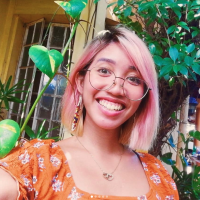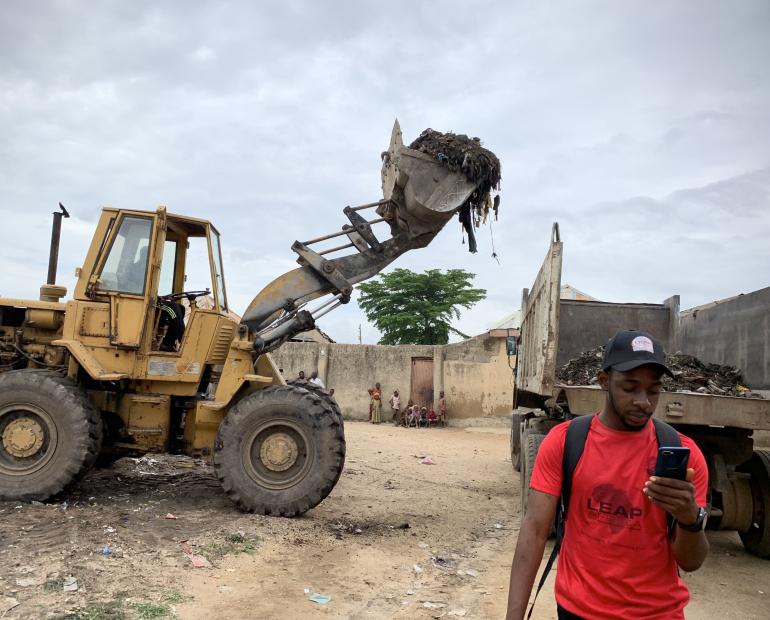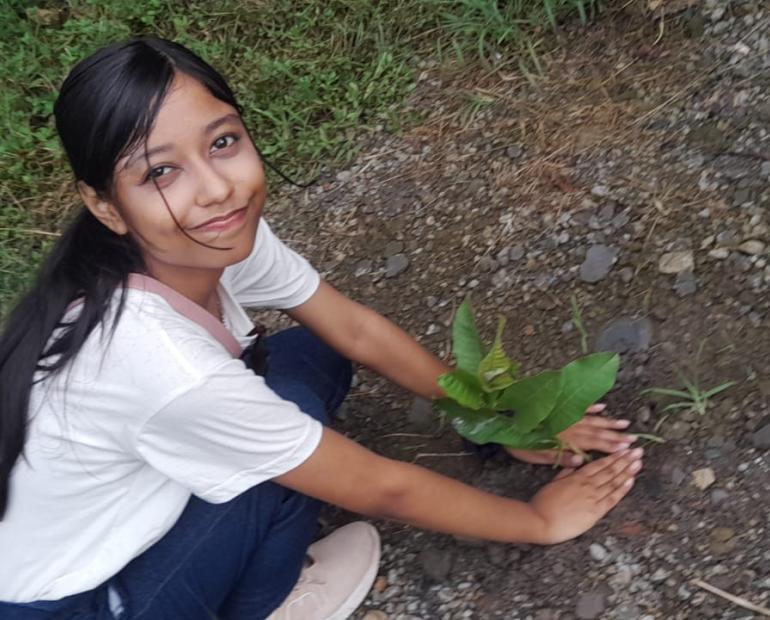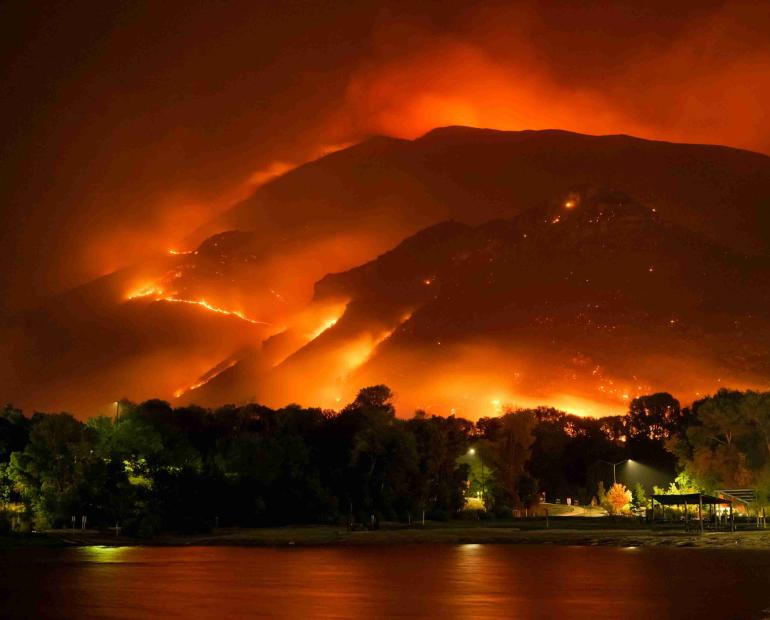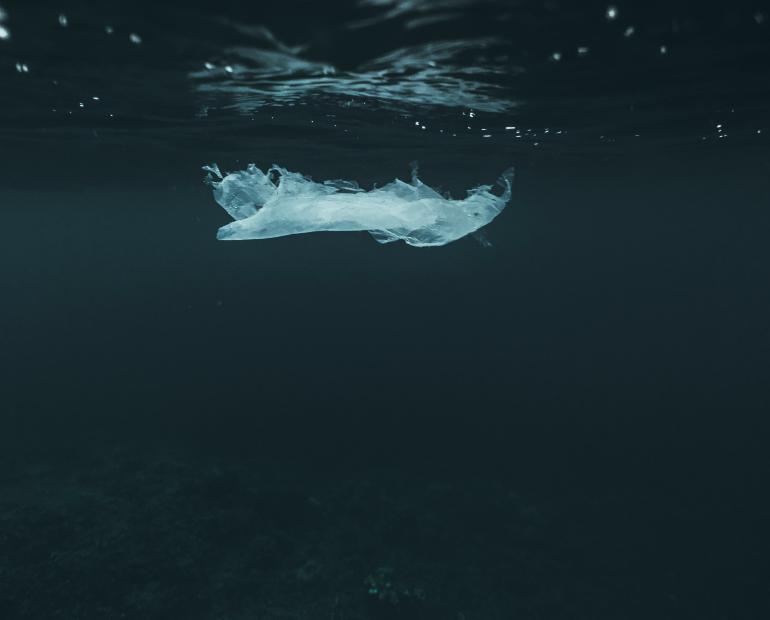
It was a rainy night in November. I had just finished doing a protest action in time for the Finance in Common Summit. A lot of Filipinos were still reeling from the devastation brought about by the strongest typhoon on the planet this year which crashed into the Philippines barely a week before.
“Have we posted our infographics about the Finance in Common Summit and the Asia Climate Rally? How about our calls for donations?” I asked my friend as we were huddled under an umbrella when my phone suddenly rang. It was my mom – she told me how the river in our city was starting to rise, how another typhoon had come, and why I shouldn’t go home because the roads are starting to get flooded. Little did I know that because of this I would spend the next two days at my friend’s house with no power, with the wind banging on the windows and doors. I saw on the news how my city started to sink, and how people were trapped on their rooftops calling for help. I had to sit in the dark for two days, not knowing if my house was consumed by the floods or even if my mom was okay.
This is the reality in the Philippines, and I am still one of the more privileged ones. So as soon as we heard about the typhoons, we jumped into action. My organization, Youth Advocates for Climate Action Philippines – the Fridays for Future of the Philippines – immediately prepared to help the most impacted communities.
We set up a donation drive and planned relief operations, spending several weekends traveling from one community to another to help and talk to them. We asked them about their experiences and how they felt. “We’re grateful for the youth and all the people who have helped, but after the relief, we still won’t recover. Where is the government? Why did they not prepare for the typhoons? Why are they not helping now?” said a member of the impacted community. The hunger for food and action from the government were palpable. We explained the scientific aspect of the climate crisis while encouraging them to demand accountability from national and world leaders.
As we were going to the evacuation centers, we saw how big groups of people were squeezed into small rooms, how there was literally no space for social distancing. That’s what makes this situation so difficult – it’s not just climate that we’re facing, because like the rest of the world, we are in the throes of the COVID-19 pandemic.
Previous typhoons had crippled the testing capacity of some regions here in the Philippines, which ultimately led to worse public health outcomes for our country; typhoons are also forcing people into evacuation centers where masks, clean water, and physical space is scarce. Looking into both the COVID and climate crisis more closely, it is the marginalized sectors of society that are most impacted, and that is something we must always consider in our fight for climate and social justice.
All this has made climate activism even harder. It’s difficult to respond to the need of communities impacted when so many of us are not allowed to go outside due to health concerns. It’s difficult to raise awareness about the climate crisis, when everything is online and it’s so easy to scroll past posts on your screen and choose to look at and think of happier things instead.
The Philippines has been under lockdown since March and that has made campaigning and organizing challenging. That’s the thing about activism – it’s not just about the powerful massive strikes and creative actions seen on media. It’s not just about going out on the streets and yelling out chants. Most of it is hours and hours of planning, tiring Zoom calls, strengthening the bonds between our members, and tirelessly convincing people of the need to act and demand change even when it all seems hopeless.
It’s about empowering people and helping them face their fears, especially in the Philippines, where activism can be dangerous and is not appreciated by our government. People are also experiencing Zoom fatigue and burnout because of how isolating everything feels.
It is definitely a challenge, but we have to remember that we are not alone in this.
The Filipino youth are fighting for climate justice, and we have a global youth movement fighting for the same thing. This gives me so much hope, the knowledge that on almost every continent, we have a friend also calling for urgent climate action. Taking it a step further, as the youth fights for a safer present and a sustainable future, we should remember that it is not our fight alone. We are fighting with the people, leading the way alongside the most marginalized sectors of society, and history has shown us that as long as we fight for justice and peace, we will always win. We will achieve the impossible, because we know we have to.
UNICEF teamed up with Fridays for Future to highlight young activists on the front lines of climate change, like Mitzi. Discover other climate activists and stories on how climate change is affecting young people today and the need for the world to keep to its commitment to limit warming to 1.5 degrees.


